Cantons struggle to house asylum seekers
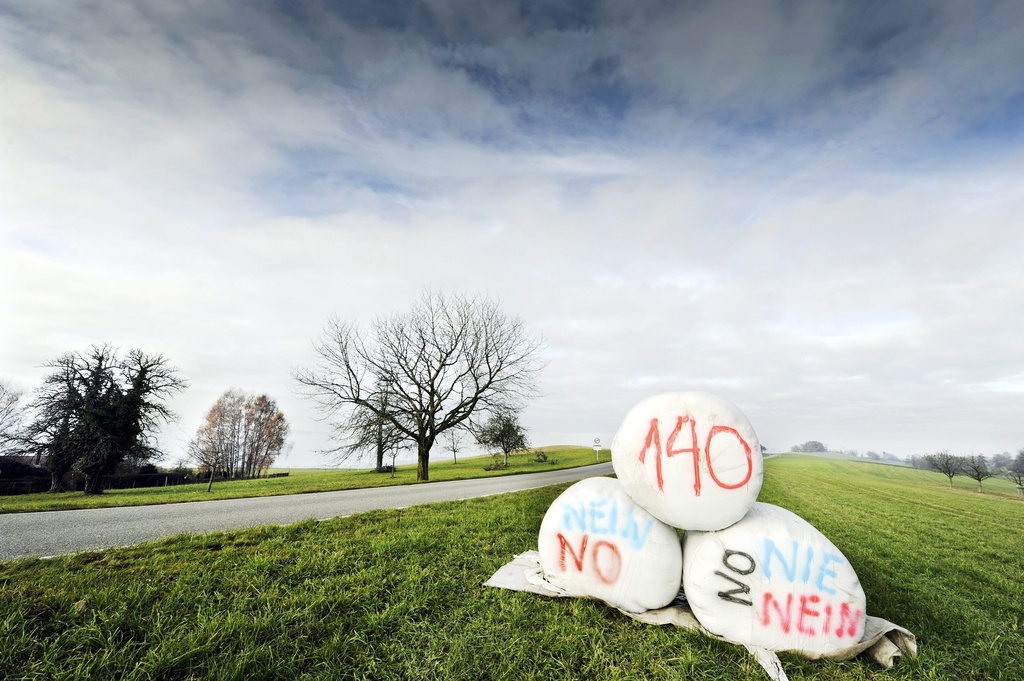
Finding temporary housing for an increased number of asylum seekers is causing a headache for local authorities, compounded by public anxiety and resistance.
This week some 400 concerned residents from Pully, an affluent small town on the edge of Lausanne, attended a heated information session regarding the imminent opening of an underground civil protection shelter to hold 50 asylum seekers.
Despite agreement in principle between the federal and cantonal authorities, plans to create additional capacities for 2,000 asylum seekers by the end of 2011 have run into difficulties owing to building regulations, unavailability of military sites and local resistance.
Across Switzerland cantons and communes have been obliged urgently to find temporary accommodation at short notice to house growing numbers.
In the end the Pully meeting was less confrontational than one at Gland, also in canton Vaud, last year. But similar questions arose from the mainly elderly audience, centring on potential security concerns to the tranquil lakeside town and worries over drug-dealing.
“Are we going to find these people in our apartments in the daytime when the centre is closed?” asked one woman.
“Who are all these people? Most of them are here for economic reasons, some become drug dealers or marry to get Swiss papers,” said another.
But opposing views could also be heard: “It’s all typically Vaudois to criticise things in advance. We have to trust the authorities.”
Vaud interior minister Philippe Leuba urged people to avoid stereotypes.
“There are delinquents – I send some of them back home by plane every day – there are people here for economic reasons seeking a better life, but there are also people who have suffered, others who have been tortured and others who are real political refugees,” he added.
Pierre Imhof, director of the Vaud migration service (EVAM), also tried to reassure the audience.
“Concerns over security are generally unfounded as asylum seekers are supervised, they typically attend a day centre… but we can’t exclude things happening,” he commented, while stressing the success of local migrant work schemes.
Sharp increase
Pully’s Damataire centre is the sixth temporary shelter opened by EVAM to cope with the sharp national increase in asylum seekers last year – up 45 per cent on 2010 to 22,551, the highest number since 2002.
Under an agreement to share the burden among the 26 cantons, Vaud is receiving 8.4 per cent of the total number of asylum seekers. But officials are struggling to find suitable short-term accommodation while decisions over longer-term options drag on.
Pully authorities agreed to open the centre on a temporary basis for one year, extendable for three-month periods according to demand.
Leuba admitted his task was not an easy one.
“I’m not here to give good news, but it’s my duty to accept the consequences of our asylum policy… it’s a particularly difficult one which does not please everyone,” said the centre-right Radical politician.
“All of our permanent structures are 100 per cent full. We hope reforms by Justice Minister Simonetta Sommaruga will shorten the current asylum application process and new federal asylum structures will mean we do not have to open too many civil protection shelters as each time it’s difficult and living conditions are not easy.”
Cantonal obligation
Not all cantons are affected to the same degree and reactions have differed from region to region.
In canton Geneva a second civil protection centre has been opened for 40 men in Carouge as a last-minute solution to cope with the overspill. But their arrival has gone relatively smoothly.
In canton Fribourg the government declared on January 19 that it was planning to open a civil protection shelter in the village of Wünnewil from mid-February for 50 asylum seekers.
Locals there have expressed worries over how this might transform life in the small Fribourg village. Some mothers of teenage girls are concerned about the potential risk from young male asylum seekers who will be housed near the school.
In some German-speaking communes resistance to the obligation to welcome small groups of asylum seekers has been more acute.
In Birmensdorf in canton Zurich the local rightwing Swiss People’s Party president Werner Steiner said he wanted no more Africans staying in one of the containers located next to the army barracks.
And in the village of Bettwil (557 residents) in canton Aargau, initial plans by the Federal Migration Office to house 140 asylum seekers at a renovated barracks have hit stiff local opposition. Even a heavily watered down proposal of 20-40 people was rejected last week.
There were 22,551 asylum applications submitted in 2011 – up by about 45 per cent on that in 2010 and the highest figure since 2002.
The Federal Migration Office said the sharp increase was largely down to the crisis in North Africa, and the opening of migration routes to Europe in March.
The top three countries from which the asylum seekers came were Eritrea (3,356), Tunisia (2,574) and Nigeria (1,895).
The number of people granted asylum was up 7.6 per cent on 2010, at 3,711.
Immigration and asylum are among the most controversial political topics in Switzerland.
While the rightwing People’s Party has been pushing for stricter asylum rules, the centre-left argues Switzerland must not violate humanitarian principles. The latest amendments came into force in 2007.
Switzerland signed up to the Dublin asylum agreement in 2008 regulating the asylum proceedings among nearly 20 European states.
The federal authorities are responsible for asylum proceedings, but it is up to the country’s 26 cantonal authorities, which enjoy considerable autonomy, to implement the policy.
Accommodation for asylum seekers has been in short supply ever since former Justice Minister Christoph Blocher decided in 2006 to close certain transit and accommodation centres and forecast only 10,000 asylum requests per year.
In an interview in the German Die Zeit newspaper on January 26 Justice Minister Simonetta Sommaruga called for a more objective approach to migration.
“The people who have applied for asylum represent two per cent of all foreigners in Switzerland. But there is a perception that 2,500 Tunisian asylum seekers can destabilise the country,” she said. Sommaruga said she did not want to play down the situation but “things should always be put in context”. She added: “There is an intransigence [over migration] that is rare in Switzerland.”

In compliance with the JTI standards
More: SWI swissinfo.ch certified by the Journalism Trust Initiative

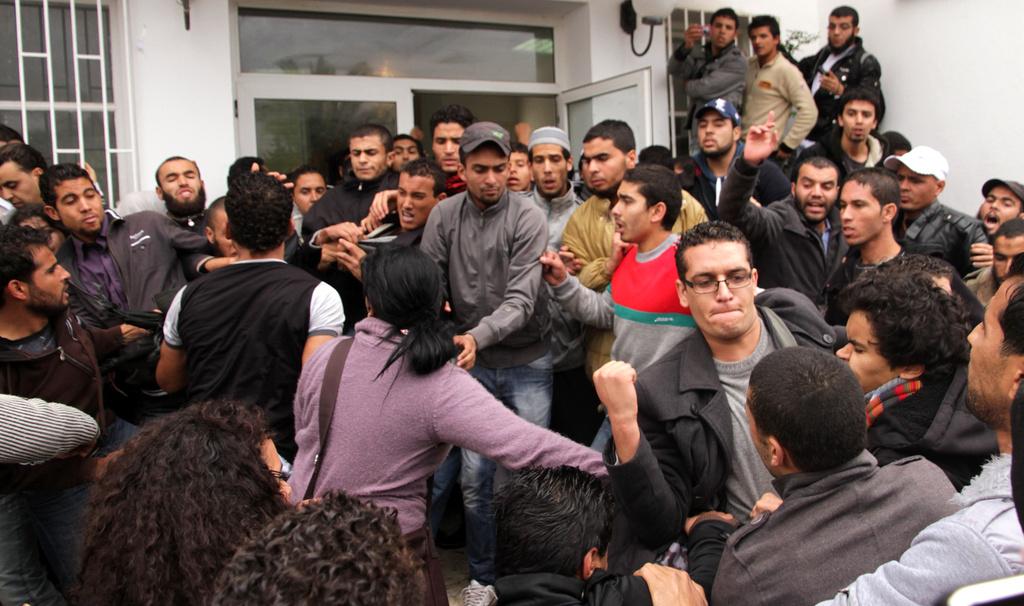
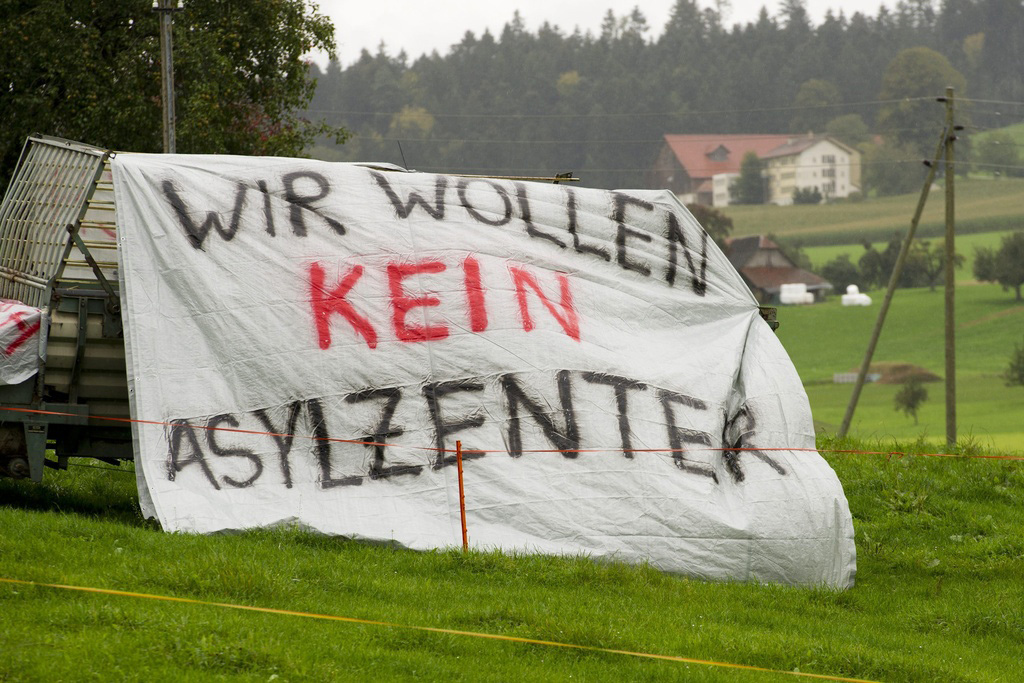
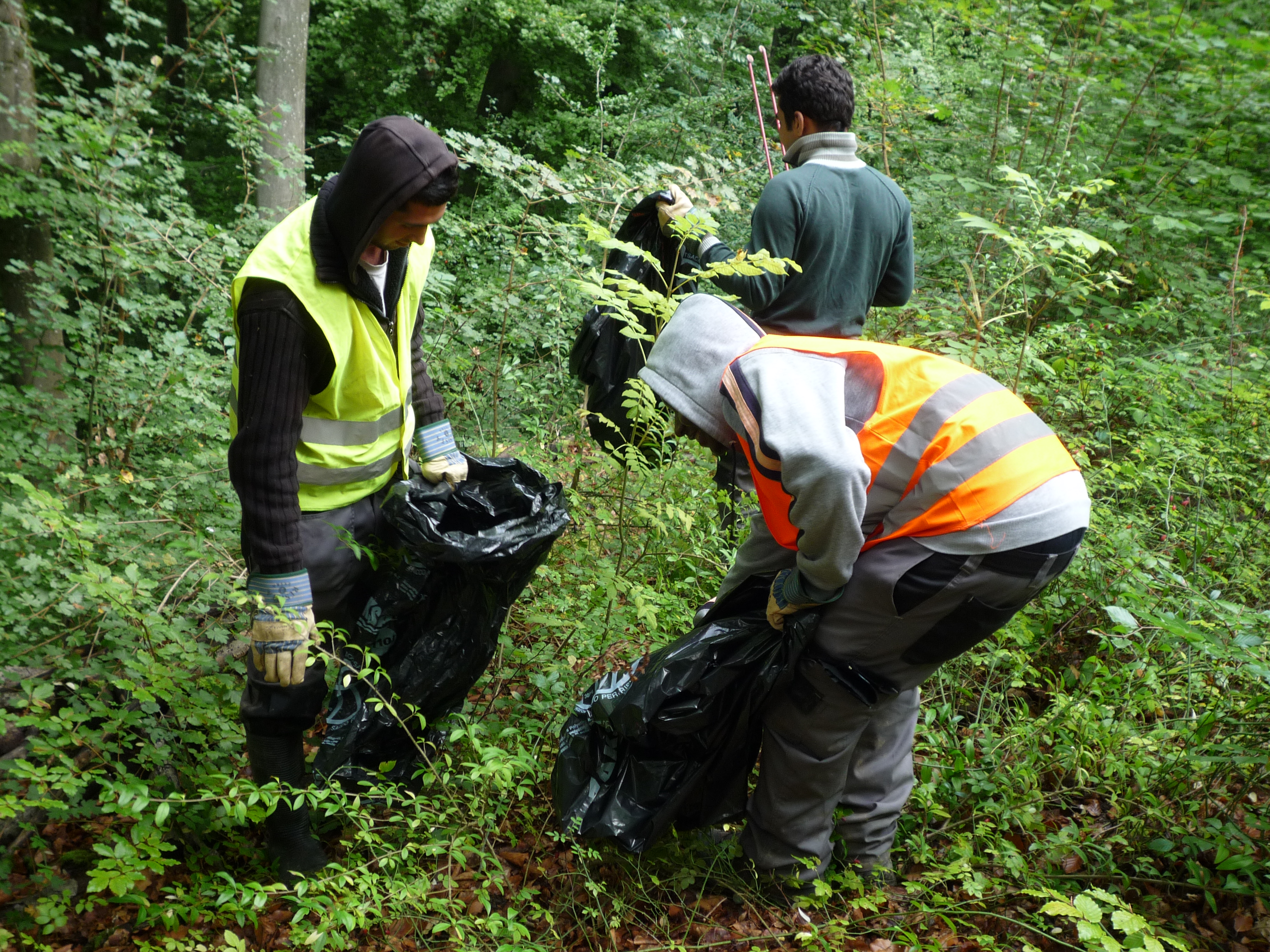
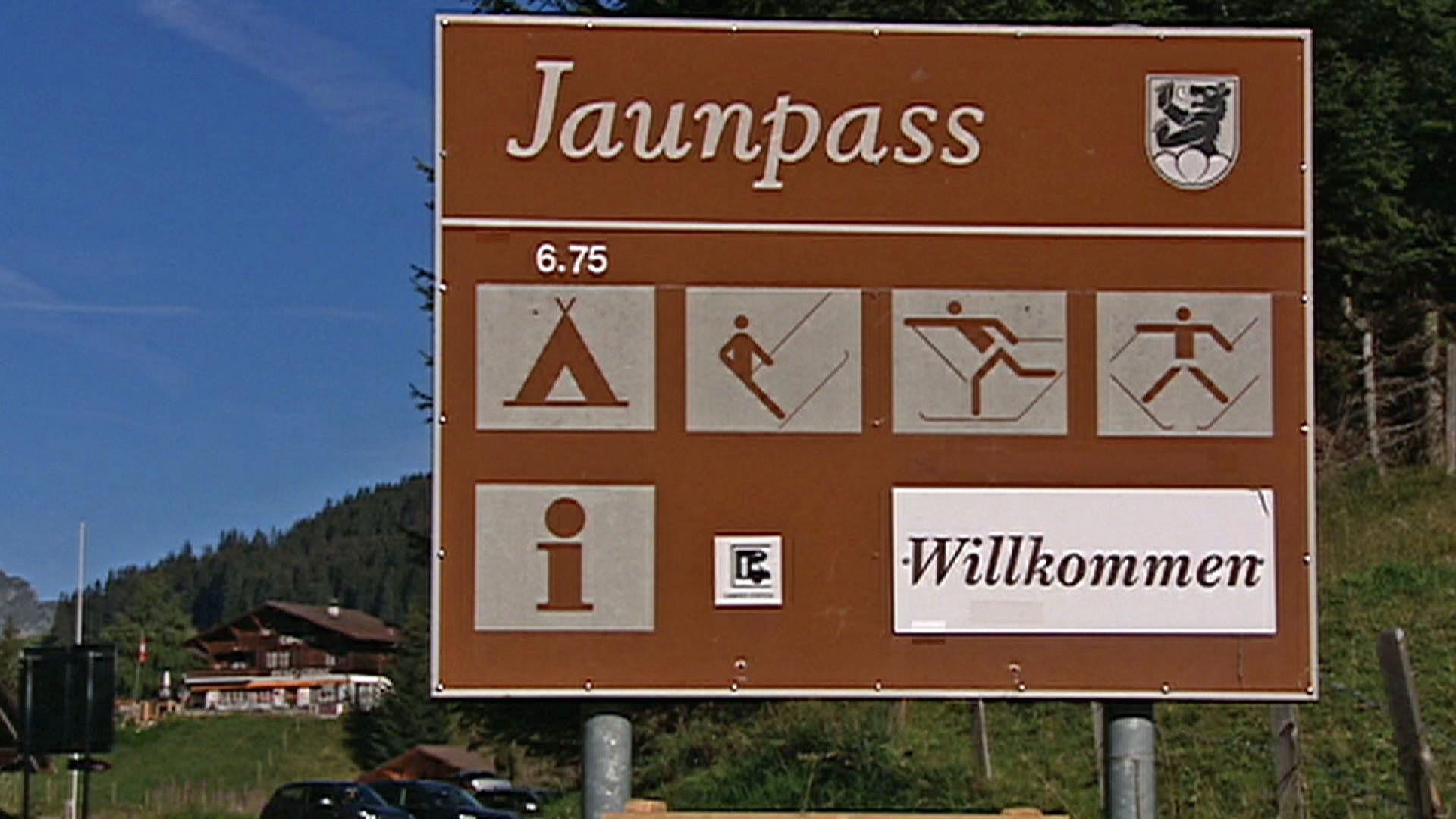

You can find an overview of ongoing debates with our journalists here. Please join us!
If you want to start a conversation about a topic raised in this article or want to report factual errors, email us at english@swissinfo.ch.